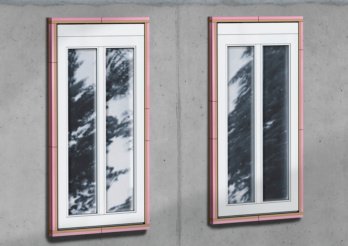For detailed information, other images and documents, please select individual articles from the following table.
VWM assembly adhesive
VWM assembly adhesive for bonding and sealing the Würth VWM pre-wall installation system
Register now and access more than 125,000 products

Variants
High-quality, neutral and permanently elastic 1C special adhesive and sealant specially designed for bonding and sealing the VWM pre-wall installation system.
- Strong initial adhesion
- Very easy to apply
- Remains elasticated after curing
- Compensates for uneven surfaces and material stresses
- Cures without bubbles even at high temperatures
- Free of silicone, solvents, halogens, acids and isocyanate
- Compatible with coatings in accordance with DIN 52452-A1
- Resistant to weathering and UV, colour-fast
Excellent adhesion to surfaces such as
- Concrete
- Autoclaved aerated concrete
- Clay brick and calcium silicate block
- Wood
VWM pre-wall installation system test (ift Rosenheim, test report 16-000444-PR01)
- Component testing and fitness for purpose testing for a mounting system in line with MO-02/1
- Component testing and fitness for purpose testing for a sealing system in line with MO-01/1
- Component test of mechanical security
- Load-bearing capacity of the AMO- III spacing assembly screw in the VWM mounting bracket
- Fire behaviour in accordance with EN 13501-1, class E
Component testing of the VWM pre-wall installation system (ift Rosenheim, test report 16-002416-PR01)
- Two-leaf glazed plastic door, 1960 mm x 1960 mm, casement weight: 69 kg
- Projection of 200 mm on masonry made of sand-lime brick
- Must only be secured mechanically using a W-UR 10 plastic frame anchor
- Additional vertical load: 800 N (class 4)
- Wind load: class 3
- Durability testing: 10,000 cycles (class 2)
Proof of joint sound insulation (ift Rosenheim, test report 15-000431.PR02)
GEV-EMICODE EC1PLUS — very low emissions
- Observe the RAL guidelines on assembly and planning of windows and house doors (art. no. 5995000000)
- Mount according to RAL guidelines Special Case 1. If there are special requirements, it may be necessary to consider Special Case 2
- It is important to check that installation has been performed correctly for the specific construction conditions (e.g. weight of window casement, surface properties). When planning and selecting suitable fasteners, their properties (e.g. base material, edge spacings, loads) need to be taken into account.
- Ensure adhesion surfaces are load-bearing, dry, clean and free of dust and grease when applying
- It may be necessary to use a primer on porous, absorbent surfaces
- Optimal adhesion on dry, clean surfaces; moist and wet surfaces lead to a reduction in adhesive strength
- Curing depends on the humidity and temperature; curing is considerably slower at low temperatures and low humidity
- We therefore recommend that you perform adhesion tests on all surfaces prior to applying
- Instructions for processing can be found in the application guidelines/installation instructions
- Technical data and other product documentation can be found in the online shop

VWM pre-wall installation system test (ift Rosenheim, test report 16-000444-PR01)
- Component testing and fitness for purpose testing for a mounting system in line with MO-02/1
- Component testing and fitness for purpose testing for a sealing system in line with MO-01/1
- Component test of mechanical security
- Load-bearing capacity of the AMO- III spacing assembly screw in the VWM mounting bracket
- Fire behaviour in accordance with EN 13501-1, class E
Component testing of the VWM pre-wall installation system (ift Rosenheim, test report 16-002416-PR01)
- Two-leaf glazed plastic door, 1960 mm x 1960 mm, casement weight: 69 kg
- Projection of 200 mm on masonry made of sand-lime brick
- Must only be secured mechanically using a W-UR 10 plastic frame anchor
- Additional vertical load: 800 N (class 4)
- Wind load: class 3
- Durability testing: 10,000 cycles (class 2)
Proof of joint sound insulation (ift Rosenheim, test report 15-000431.PR02)
GEV-EMICODE EC1PLUS — very low emissions
- Bonding the Würth VWM exterior insulation foam module to the load-bearing surface
- Bonding the corner and butt joints of the VWM mounting bracket
- Sealing the VWM exterior insulation foam module
Using the VWM assembly adhesive, the VWM mounting bracket is bonded to the supporting wall around the full circumference of the window/door opening, sealed and additionally mechanically fastened with a suitable dowel system.
Ensure adhesion surfaces are dry, suitable, clean, dust-free and grease-free when applying.
For adhesion, apply 6/6 mm beads to the VWM mounting bracket. Range per cartridge approx. 10 m bead length.
Further detailed information on processing can be found in the processing guidelines/mounting instructions.
Select RAL-colour code
!! NOTE: On-screen visualisation of the colour differs from real colour shade!!







